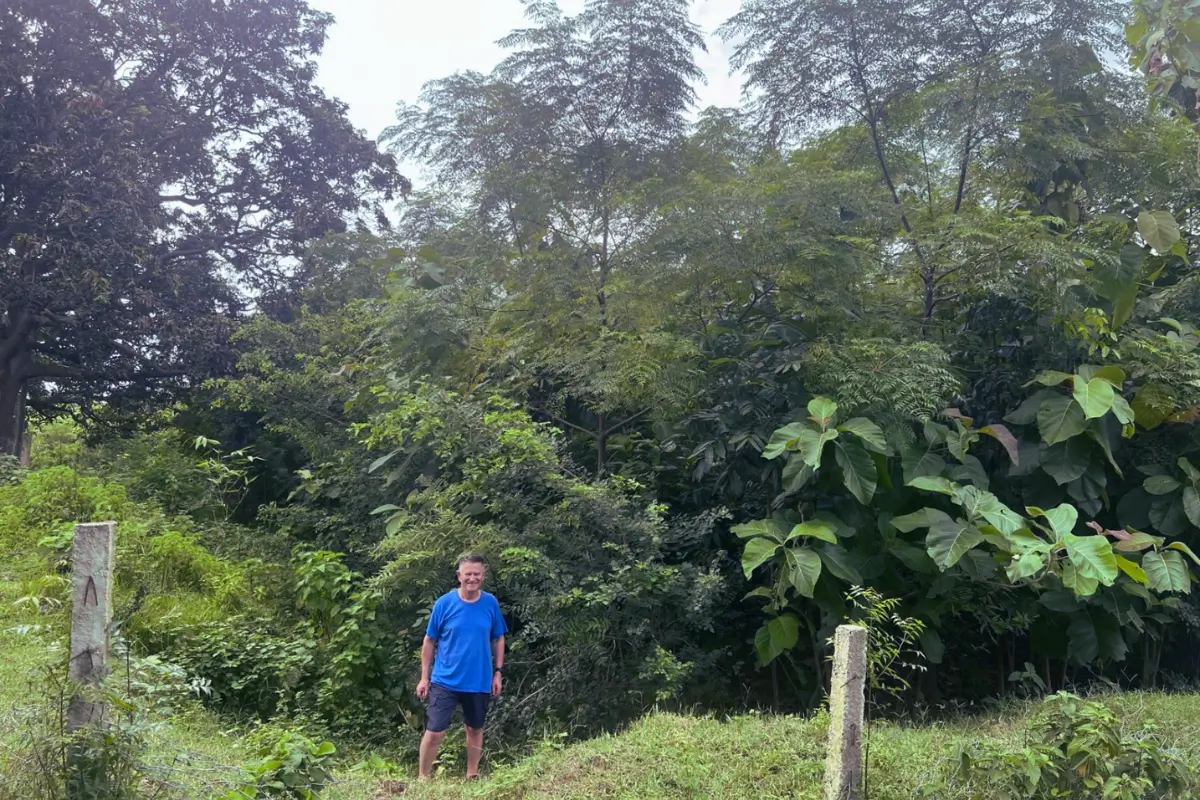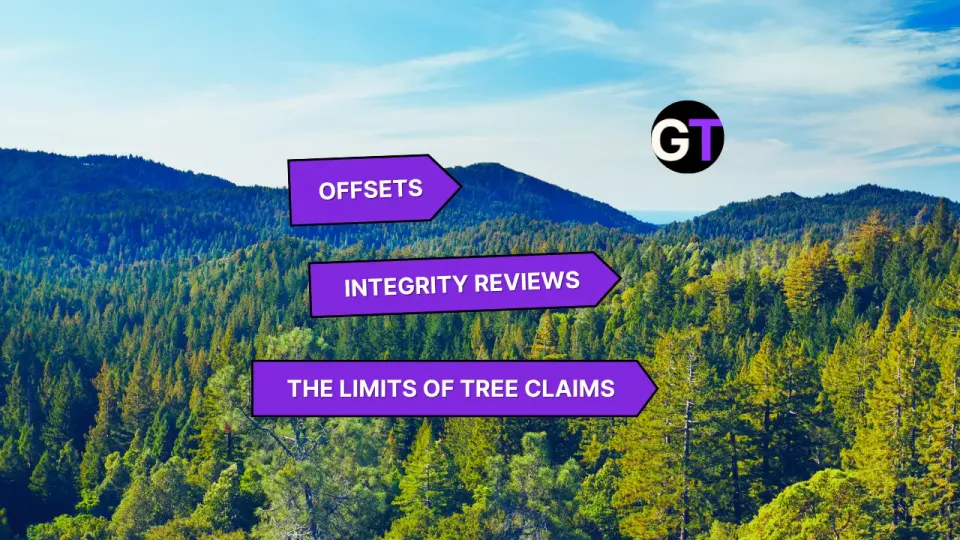Pipal Tree: the Power of One (and of the Miyawaki Method)
"I think it's possibly very easy to kind of save the planet by spreadsheet" says Holmes.

Philip Holmes: Dentist and Tree-Planting Mastermind
Lieutenant Colonel Philip Holmes, the founder of Pipal Tree, has had an incredible career trajectory. From dentist, to child-slave liberator, to the head of a tree-planting NGO in Nepal, his story is remarkable, tragic and inspirational.
Pipal tree, which he runs as a one-man show, focuses on reforestation in Nepal using the Miyawaki method, a technique that creates dense, native forests by planting a variety of species in close proximity.
This method accelerates forest growth, with trees maturing much faster than in conventional planting systems, and helps restore biodiversity while building ecosystems that are resilient to climate change.
Through this approach, Pipal Tree is making a tangible impact on Nepal’s forest landscape, that Holmes wants others to see and emulate.
Why Nepal?
Though conservation was always his dream, Holmes first pursued a career as a dentist in the British Army.
He credits his admiration for David Attenborough as the inspiration behind this lifelong passion. However, it wasn’t until later in life that he was able to turn his focus fully to his original aspirations.
Holmes' journey to Nepal was serendipitous yet profound. Despite the historical ties between Nepal and the British Army, Holmes hadn’t visited the country before embarking on this chapter of his life.
His early work in the region wasn’t with forests but with children. Motivated by the tragic loss of his first wife, Holmes dedicated himself to rescuing children from dire situations.
Holmes spent the next two decades spearheading efforts to free Nepalese youth from prisons and Indian circuses, the latter of which he described as "effectively a modern-day slavery situation." His intervention effectively closed down this child-trafficking route, saving hundreds of young lives.
But when you succeed, what do you do next?
Colonel Philip Holmes giving a TED talk.
Pivoting to Restoration: Amateurs Can Step Up
Decades later, his deep connection to the country naturally evolved into a new purpose: restoring its forests. In 2020, Holmes turned his focus to environmental restoration.
This decision was partly motivated by global events, particularly anti-climate action by a certain U.S. President we delicately chose not to name.
What stands out in both his planting project and his previous work with children is his belief in “the power of one”. He openly acknowledges he’s not an expert in conservation but insists that passion and determination are enough to make a difference.
To people who say we should leave these things to specialists, Colonel Holmes replies there is also a place for people who simply have common sense.
His one-man-with-a-laptop approach aims to reshape Nepal’s forest landscape, tree by tree (seriously, he begs other tree planting projects to please copy him).
"I'm a great believer in passion, determination, [and] the power of one," Holmes says. "Inject passion into all you do, and you'll be surprised."
The Biggest Challenge: Planting in the Face of Drought, Wildfires and Floods (Oh My!)
Holmes faces many challenges in his mission to restore Nepal’s forests, but one of the most significant is drought. While Nepal experiences an annual three-month monsoon season, the effects of climate change have made rainfall patterns increasingly erratic. What used to be a dependable planting season is now shorter, with soaring temperatures compounding the issue.
Despite the rainfall during monsoon months, the rest of the year is often marked by prolonged dry spells. This makes establishing saplings particularly difficult, as they require consistent water during their early stages of growth. Climate change has also raised overall temperatures, further straining water resources and making forest restoration an uphill battle.
Greenwashing, Tree Planting and Trust
Holmes is refreshingly candid about public skepticism surrounding tree planting as a solution to climate change.
Terms like greenwashing are often bandied about nowadays, and studies show trees on their own can't do it. It seems much of the momentum to plant a trillion trees has stalled. He acknowledges the concerns.
"I'm deeply skeptical and cynical about a lot of the stuff that's going on at the minute," he admits.
This skepticism stems from his long history of work in Nepal, where trust in official figures and numbers can be tenuous. Yet Holmes insists that the results of his project speak for themselves:
"Transparency is our best form of marketing, isn't it?"
Holmes believes transparency is the key to projects like his succeeding. By making his work measurable and accessible—right down to satellite-visible results—he sets Pipal Tree apart.
His openness is exemplified through his project’s inclusion on platforms like Restor.Eco, a global database that tracks ecosystem restoration projects for the whole world to see freely.
While Holmes admits the site needs updates, he takes pride in the fact that his work is visible even from space.
"I think it's possibly very easy to kind of save the planet by spreadsheet." he opines.

Rewilding is More than Planting Trees
For Holmes, the entire project is about far more than planting trees. He argues that this perspective is overly simplistic and fails to capture the broader effects of ecosystem restoration.
He highlights the joy he feels when he sees fauna returning to restored areas—a powerful indicator of ecological success. But the impact isn’t just environmental; it’s deeply social as well. Holmes emphasizes the socioeconomic benefits of tree planting, particularly in Nepal:
"If you look out for the community interests as well, then you're in a win-win situation, and you'll have a more sustainable result."
His work fosters not only environmental regeneration but also community resilience, ensuring that the people living near these projects benefit directly from their success.
The Takeaway
My conversation with Colonel Holmes left me inspired and reflective. His story isn’t just one of career reinvention; it’s a testament to the impact of individual action, no matter the scale.
I didn't really grill Holmes for many granular details of planting—he doesn't take survival plots in the traditional sense—the many pictures of land so thick with trees seems to speak for itself.
There are trees being planted here, and many of them are surviving. I beieve it. If you want to know more, Philip Holmes will tell you. He's a strong believer it seems in the efficacy of his methods and like I mentioned, hopes to see it adapted throughout Nepal.
From rescuing children to restoring ecosystems, Holmes exemplifies the philosophy of “the power of one.” His journey reminds us that even amid skepticism and global challenges, passion, determination, and transparency can drive meaningful change.
We have a podcast!
Edited by Chris Harris

This work is licensed under a
Creative Commons Attribution 4.0 International License.





